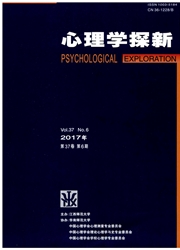

 中文摘要:
中文摘要:
已有研究表明有效的知识分享有利于组织任务的完成,而人的因素是影响知识分享的核心和难点。该研究采用《中国人人格量表》第二版(简称CPAI-2),探讨中国背景下与文化相关的人格特质(人情、面子)如何影响个体知识分享行为(包括知识收集和知识贡献)。研究结果发现:(1)人情和面子可以显著预测知识分享行为,并通过自我效能和社会价值间接的影响知识分享行为;(2)上述中介作用在知识收集和知识贡献两个维度上表现为不一致的特点。研究结果说明,在中国文化的背景下促进知识分享行为,需要考虑人情、面子等传统人格特质;同时,促进组织成员的知识收集行为与知识贡献行为应该使用不同的策略。
 英文摘要:
英文摘要:
It is widely accepted that knowledge sharing behaviors can contribute to the task accomplishment.In present study,the authors used Chinese Personality Assessment Inventory II(CPAI-2)to analyze the effect of culture-related personality(e.g.,RenQing,Face,Harmony)on knowledge sharing behaviors,and the role of self-efficacy and perceived social value in the relation between personality and knowledge sharing behavior.Results showed that:(1)RenQing and Face had positive relations with knowledge sharing behavior,in which self-efficacy and perceived social value took a mediated role;(2)The relationship mentioned above showed dissimilar pattern between knowledge collecting and donating behaviors.The results indicated that RenQing and Face should be considered if we want to enhance knowledge sharing in Chinese organizational context.The difference of knowledge collecting and donating also should be taken into consideration in knowledge management.
 同期刊论文项目
同期刊论文项目
 同项目期刊论文
同项目期刊论文
 期刊信息
期刊信息
